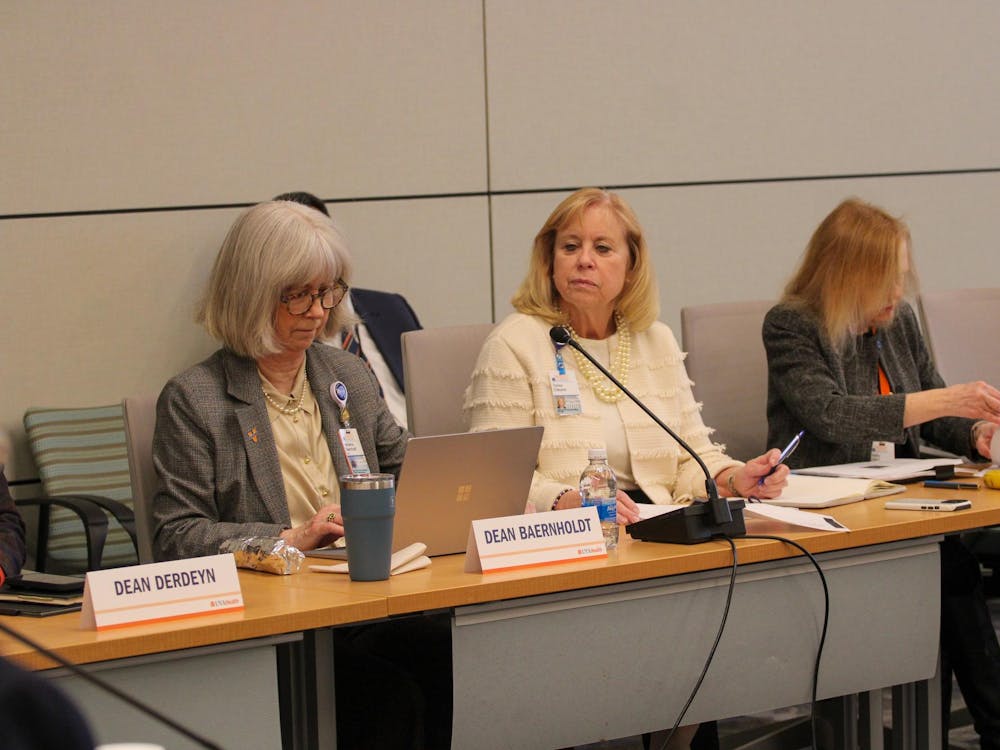Virginia Gov. Bob McDonnell signed Senate Bill 41 Thursday, giving Thomas Haynesworth $1,075,178 in compensation after he served 27 years in prison for rapes he did not commit, according to a statement released by the Governor's office.
Haynesworth was in prison from 1984 until last March, but he received a writ of innocence for all convictions in December last year, according to the statement.
Attorney General spokesperson Caroline Gibson said in an email Haynesworth's conviction was overturned after an "unprecedented review" of files retained by the Department of Forensic Science which looks at, among other things, DNA evidence.
"This review and testing process has been in place since 2005 and is winding down," Gibson said of the state-wide review of old cases.
Haynesworth will receive part of his compensation as a lump sum and most of it as a 25-year annuity, Gibson said.
Sen. Henry Marsh, D-Richmond, the bill's sponsor, said the legislation included a pension for Haynesworth proposed by Attorney General Ken Cuccinelli and Sen. Donald McEachin, D-Richmond, so he will receive compensation for his entire life.
Haynesworth has worked for Cuccinelli for about a year doing clerical work, Gibson said.
"He was hired last April after it became clear that he was having difficulty securing employment while he remained on parole awaiting the complete vindication we all worked hard to secure," Gibson said. "[He] is a great addition to our team."
Marsh said he introduced the bill because Haynesworth would be more likely to gain compensation through state legislation than through a lawsuit.
"If you try litigation, you might be hampered by a hostile jury," Marsh said. "You're rolling the dice [with litigation]... I've been practicing law for 50 years, and you never know what you're going to get."
Marsh said Haynesworth had been "articulate and reasonable" throughout the whole process, which helped his case.
"He realized that no amount of money could make him whole," Marsh said.
Marsh added that although a million dollars sounds like a large number, especially during stretched budget times, it is not much considering the length of Haynesworth's wrongful sentence and punishment. "That's the least we could do," Marsh said.
Gibson and McDonnell said the criminal justice system, on the whole, is "overwhelmingly successful" in only convicting truly guilty criminals.
"[T]here are exceedingly rare occasions when our justice system... results in the conviction and imprisonment of someone who, through further investigation of evidence or improved technology, is later proven to be innocent," McDonnell said.
Gibson said the thorough collection of evidence about three decades ago allowed the courts to review and overturn Haynesworth's conviction.
"This and similar cases really are situations in which the science caught up with the facts," Gibson said.
The University Law School launched an initiative in 2008 known as the Innocence Project which works to exonerate wrongfully convicted persons. The Innocence Project investigates cases in which convicted offenders claim innocence.
Matthew Engle, legal director of the Innocence Project, said persons who claim they have been wrongfully convicted must meet a high burden of proof.
"They have to be able to explain that the testing wasn't available at the time of their conviction," Engle said, and they must also prove in court that the DNA evidence proves innocence beyond a reasonable doubt.
The Innocence Project successfully overturned a death penalty conviction last July, according to the initiative's website.
McDonnell said the state's compensation of Haynesworth was "morally right."
"This restitution will help ensure that Mr. Haynesworth is able to build upon his freedom and return to society in a successful way," McDonnell said.
Both Virginia houses unanimously approved the bill last month.
-compiled by Joseph Liss






